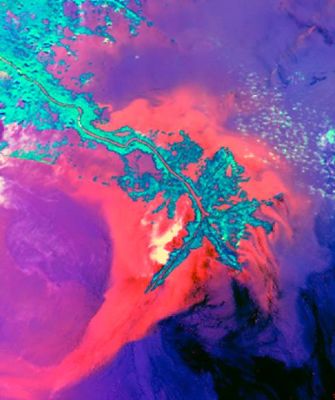by Larry
June, 2010Power JeopardyUnited States presidents since Nixon, about two generations ago, have been calling on our nation to wean itself of so much dependence on energy, all to no avail. And of course we are not alone, just the biggest per capita consumer of energy on the planet. China, even with lower energy use per individual, will soon pass us in total energy demand simply by virtue of that country's enormous population, 1.3 billion and climbing (currently one billion larger than the U. S.). Energy needs for India are not far behind. Meanwhile, our huge dependence on energy means we must import the majority of what we use, as a result funding some of the very nations with whom we are in dispute,
All in all, the total global demand for energy has multiple adverse effects and yet is climbing through the proverbial roof, just when climatologists warn we must curb energy use to avoid a disaster from the effects on the land, sea, and air environments, rising temperatures, changes in ocean currents, hazardous new weather patterns, etc. So, we should not be surprised if in the quest for ever more important fuel and power access there are along the way a few horrendous economic and environmental disasters which, like the BP managed oil rig platform explosion in April of this year and the subsequent leaking of up to 60,000 barrels of oil into the Gulf of Mexico everyday, may rival the 1986 Chernobyl tragedy in scope before their effects are fully contained. For all the after-the-fact hand wringing and belated Cassandra crying over spilt oil and about "Who could have imagined..." that something as terrible as this could have happened, though regulators were not doing their jobs in reining in the oil industry any more than they had been holding the investment banks or mortgage lenders in check a few years before (leading to the near collapse of the entire economy in 2008), it is hardly news that very bad things tend to happen when our species does more and more unsafe things to acquire the resources to which it feels entitled. It is at least hypocritical to exclusively blame the oil industry when the inevitable occurs, though we in fact encourage it to cut corners and work flat out, 24 hours x 7, competitively pursuing every last drop of petroleum product for the black-hole-like, ever widening maw of our ceaseless insistence on for more and more power. Can we at any rate say that we have seen the last of the horrible consequences of an unquenchable appetite for greater supplies of energy? Not hardly. A host of other potential debacles are waiting in the wings, and some may make this year's Gulf oil spill appear tame by comparison. According to a recent issue (June 28, 2010) of Forbes magazine, in "If You Think That Oil Spill Is Bad..." by David Fisher and Christopher Helman (pages 30-32), the increasing complexity of existence in a populous 21st Century will likely bring about progressively more interdependent and costly misfortunes. A few of these include:
For better or worse, though, none of these possible accidental or terrorist related incidents would be likely to reach the magnitude of natural disasters that might occur at any time. Not to mention large meteor strikes, the eruption of a volcano in a densely populated area, such as Italy in the shadow of Vesuvius, could pose a threat to millions and create havoc costing about $100 billion or more. Seen in this perspective, then, while I personally think much more should be done to alter the direction in which we seem headed, some of our most negative power related accidents may still not be sufficient to cause us to curtail our frenetic acquisition and use of various types of energy, even if in their pursuit sometimes "sh-t happens." |
